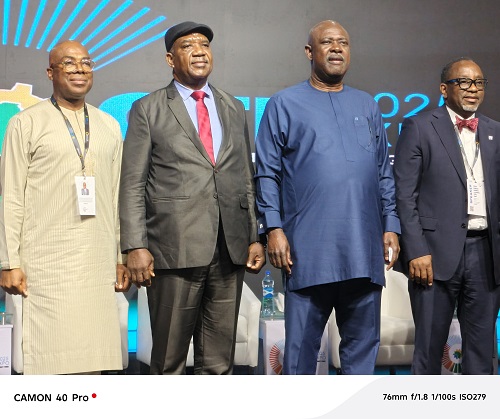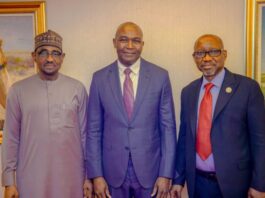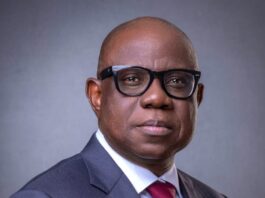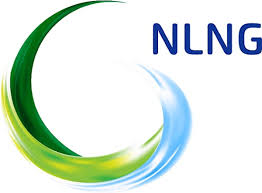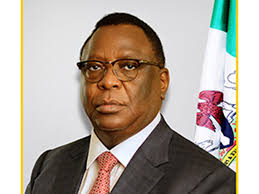.Says $450bn needed globally to recover oil and gas infrastructure
.As lokpobiri reaffirms commitment to investment and reassessing energy transition
President Bola Ahmed Tinubu has declared that Africa’s $120 billion worth of hydrocarbon resources must be made to benefit the continent and its people.
Tinubu stated this at the opening ceremony of the ongoing 19th edition of the OTL Africa Energy Week in Lagos, maintaining that limited refinery capacity and distribution network in Africa have led to exports of larger chunk of oil and gas expenditure to countries outside Africa, advocating a slash in exports through fixing of refinery capacity and distribution network challenges.
Represented by the Minister of State for Petroleum Resources (Oil), Senator Heineken Lokpobiri, he reaffirmed the Federal Government’s commitment to deepening investment in Nigeria’s oil and gas sector, saying the world is rethinking its approach to energy transition and returning focus to hydrocarbon development as a means of ensuring global energy security.
He noted that recent reports by the United Nations underscore the urgent need for renewed global investment in the oil and gas industry to meet growing population and energy demands.
According to him, the UN projects that the world needs to invest about $540 billion annually in oil and gas recovery and associated infrastructure to guarantee stable energy supply.
“The world has come to realise that energy transition cannot happen in a vacuum. Even as we pursue cleaner sources, the global economy still runs on oil and gas. Without substantial investment in these resources, there will be no financial capacity to fund the energy mix we all desire,” Lokpobiri stated.
He noted that while discussions around climate change and net-zero commitments remain important, the realities of global energy consumption and population growth have made it clear that hydrocarbons will continue to play a central role in the foreseeable future.
“Africa, with its population now exceeding 1.4 billion people, cannot afford to ignore investment in oil and gas. Expanding exploration, production, and refining capacity is crucial not only for self-sufficiency but also for economic stability across the continent,” he said.
The minister observed that Nigeria’s downstream sector is gradually stabilising following the removal of fuel subsidy and the liberalisation of petroleum product pricing, describing the development as a bold and necessary step to attract private sector investment.
“Subsidy was not sustainable. It discouraged private investment and placed a heavy financial burden on the government. What we are seeing now is a more competitive environment that encourages efficiency, accessibility, and availability of petroleum products,” he explained.
Lokpobiri commended President Bola Ahmed Tinubu for taking decisive policy actions that have repositioned the downstream sector for long-term growth.
“It takes a courageous leader to make decisions that may be unpopular today but are necessary for the country’s future stability. What we are experiencing now is the outcome of such bold leadership,” he said.
He added that ongoing reforms in the oil and gas industry are geared toward ensuring energy security, encouraging domestic refining, and fostering private sector participation across the value chain.
The minister also called on stakeholders in the downstream sector to align with the government’s policy direction and contribute to building a more sustainable and diversified energy future.
“We are no longer just talking about transition; we are talking about an energy mix that guarantees energy security for Africa. Every stakeholder must align with this vision to create the Africa we want,” Lokpobiri emphasised.
The OTL Africa Downstream Energy Week, now in its 19th edition, serves as a premier platform for policy dialogue, industry networking, and investment promotion across Africa’s downstream petroleum value chain.


